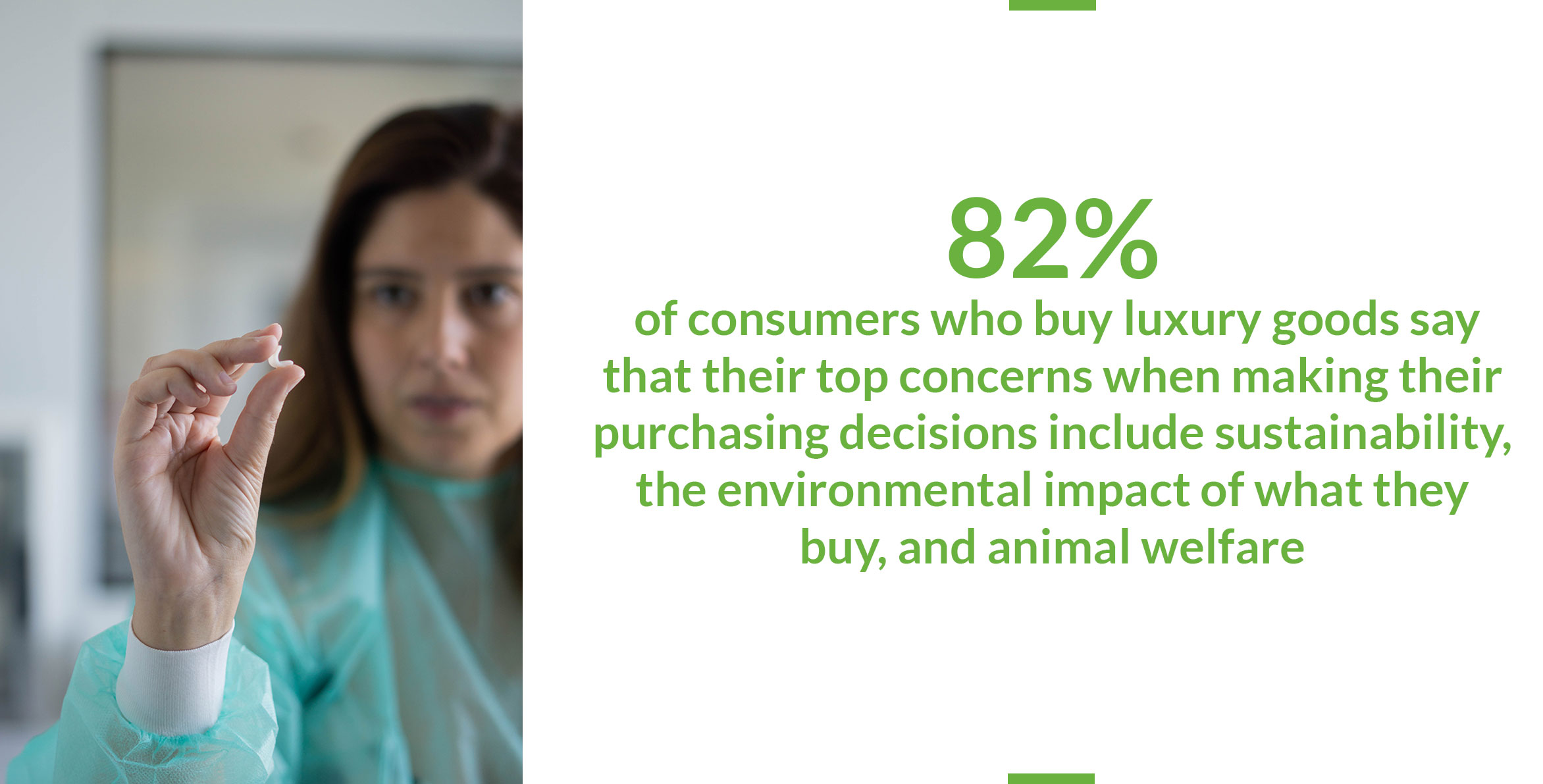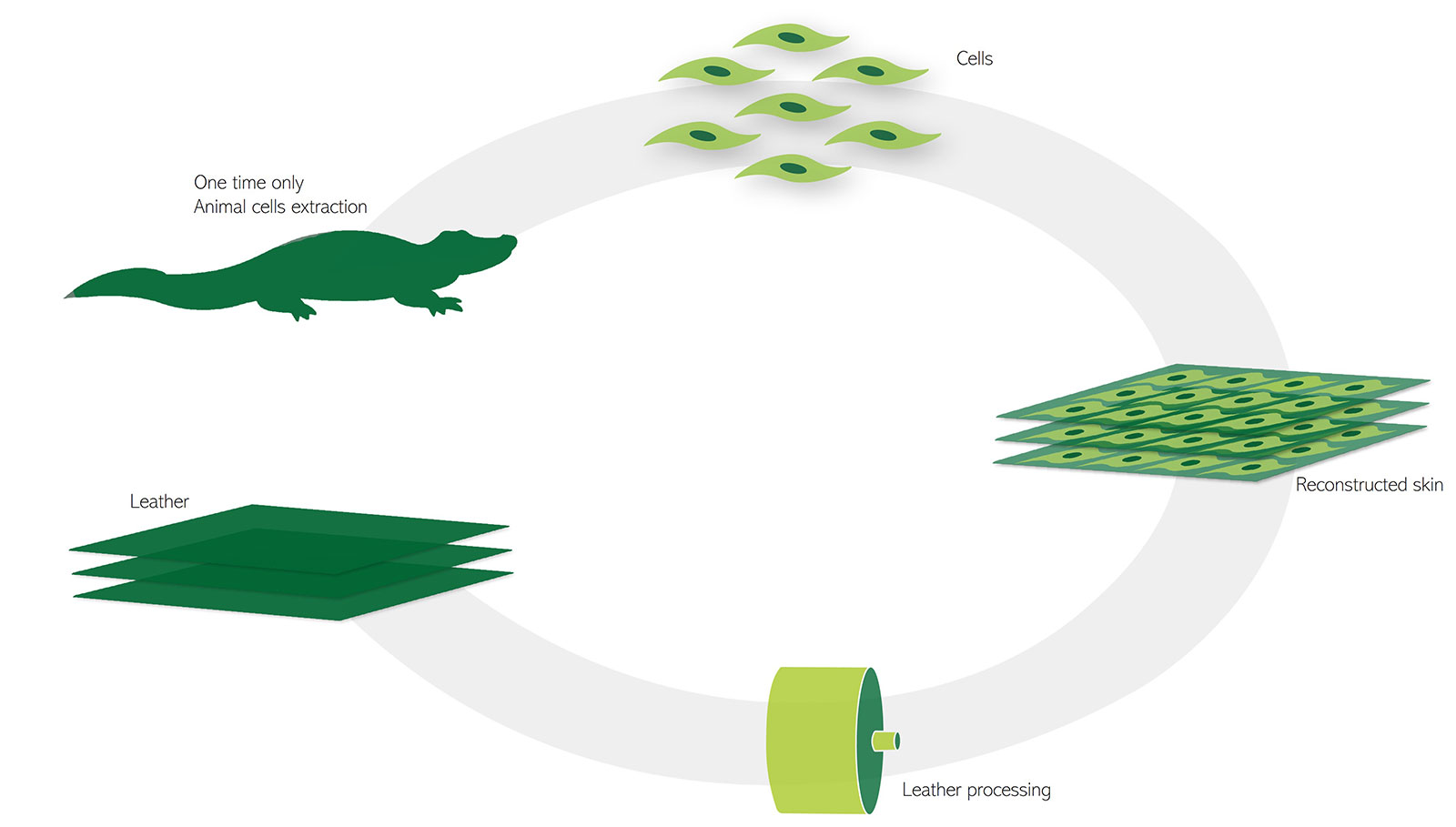Corium Biotech is a startup that explores and adapts cellular agriculture techniques for the laboratory bioproduction of exotic animal leather (crocodiles, alligators, snakes, etc.).

The idea to move forward with the development of alternatives to exotic animal leather came after the founders, Maria João Maia and Margot Muller, visited the Everglades, a nature reserve in the U.S. state of Florida famous for being an alligator sanctuary. The founders, who at the time were completing their PhD in cell biology, were confronted with a brutal reality unknown to them: more than two million exotic animals are killed each year to supply the luxury fashion industry. Ten of the 23 existing species of crocodiles are today in danger of extinction due primarily to poaching, which is directly linked to the high value of their skins.
Sustainability awareness is increasing among consumers, reflected in their purchase criteria. Eighty-two percent of consumers who buy luxury goods say that their top concerns when making their purchasing decisions include sustainability, the environmental impact of what they buy, and animal welfare.
With luxury groups actively seeking alternatives to the use of exotic animal skins that will allow them to keep and even gain more customers, Corium Biotech offers a different solution to most other players in the new materials sector. While the competition is mostly dedicated to the development of biomaterials derived from plants and/or microorganisms that mimic the appearance of leather, Corium Biotech goes a step further and focuses on reproducing exotic leather in a laboratory using cells, creating a final product that not only has the appearance of natural leather, but also the same mechanical properties. This material is an alternative to the use of exotic animal leather and its adoption by customers will lead to a subsequent decrease in the number of animals killed annually to supply the industry, thus actively contributing to the protection and conservation of these species.
In the future, Corium Biotech envisages the possibility of adapting its exotic leather by incorporating nanotechnology to introduce new functionalities, ranging from colour changes to the ability to monitor biomechanical and physiological parameters.

In the future, Corium Biotech envisages the possibility of adapting its exotic leather by incorporating nanotechnology to introduce new functionalities, ranging from colour changes to the ability to monitor biomechanical and physiological parameters.


